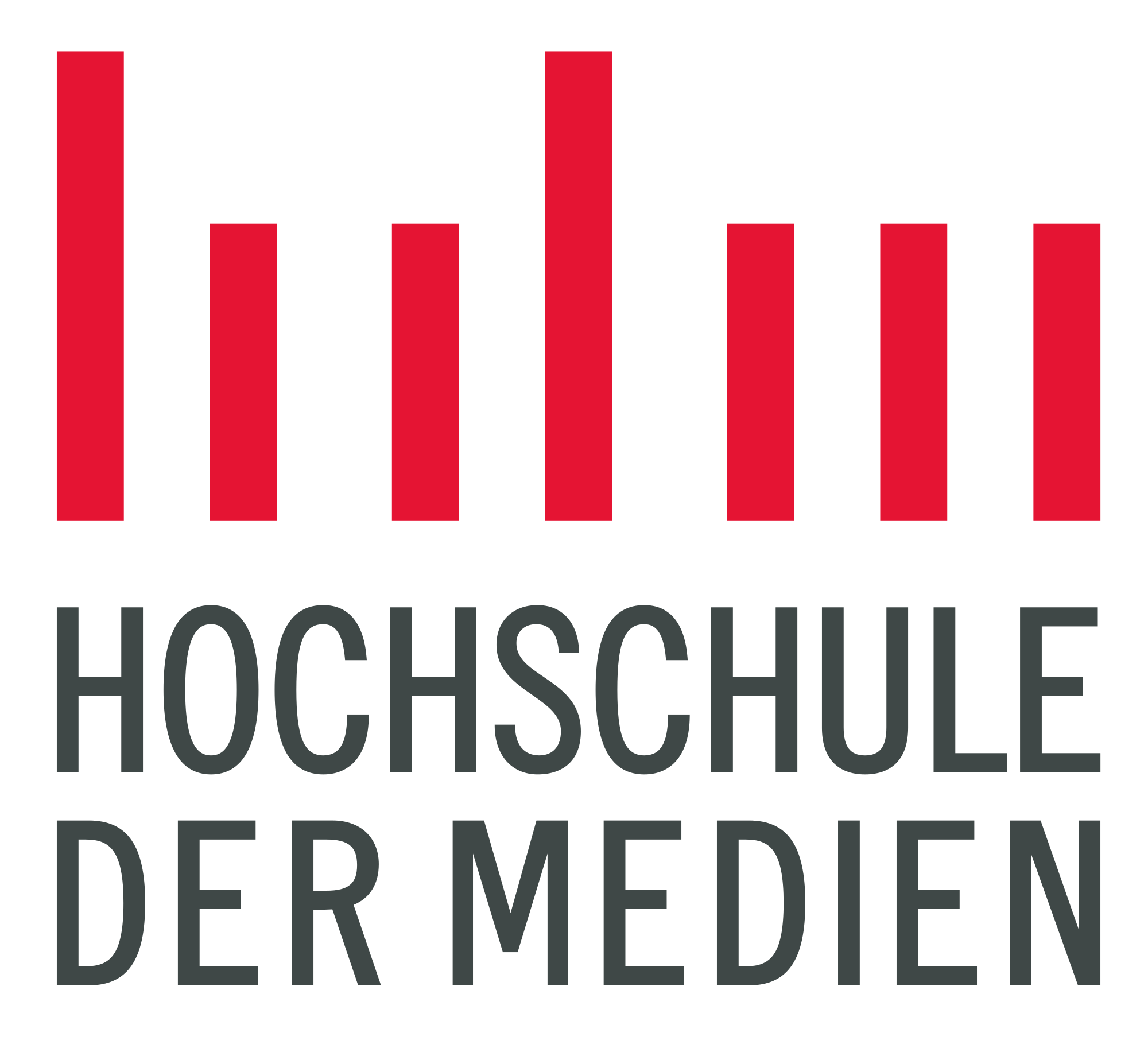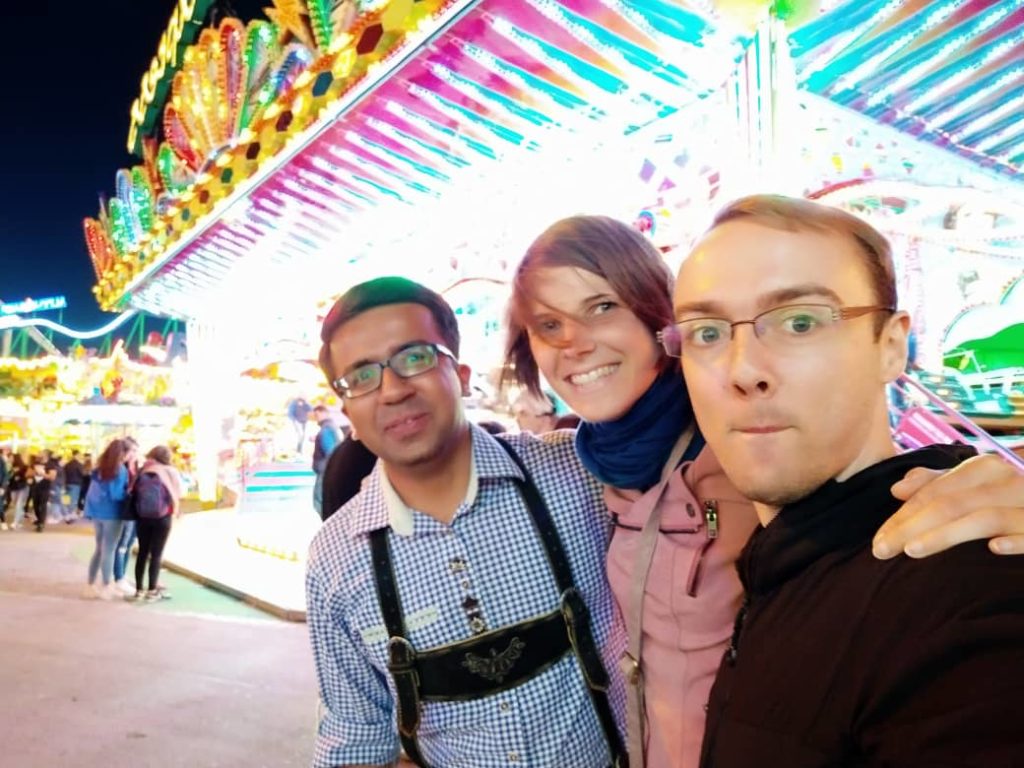
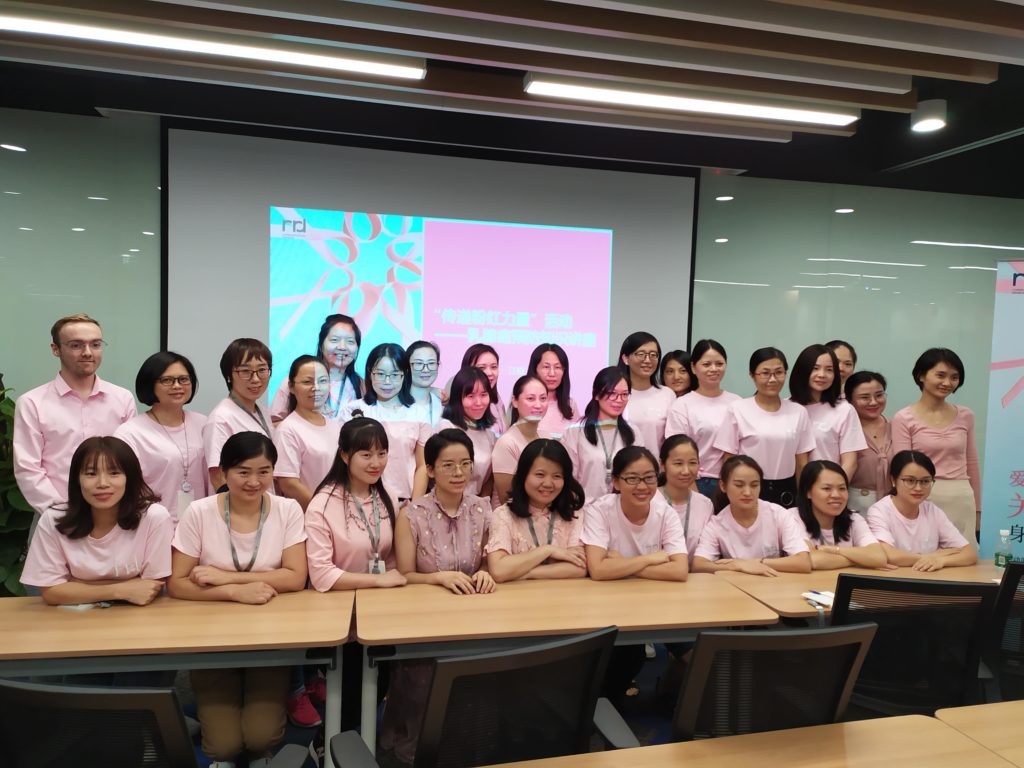

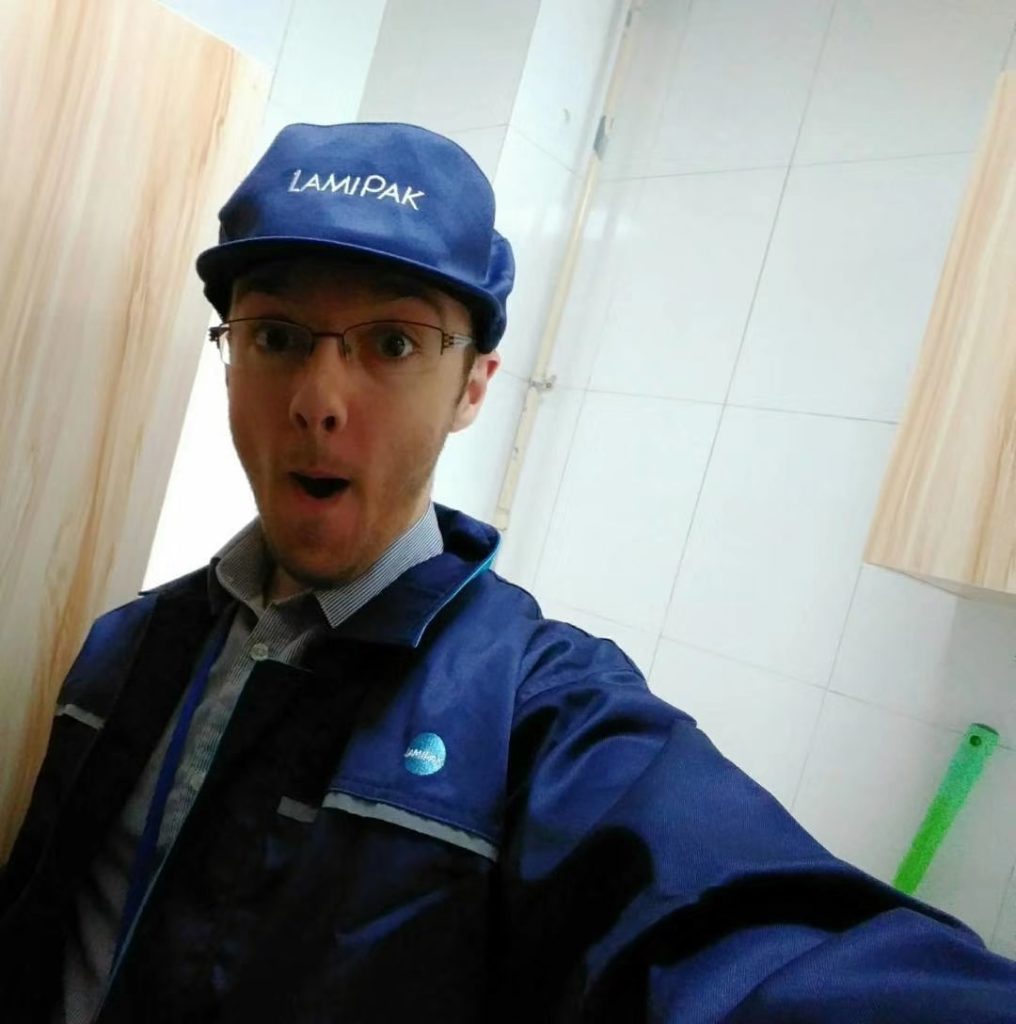
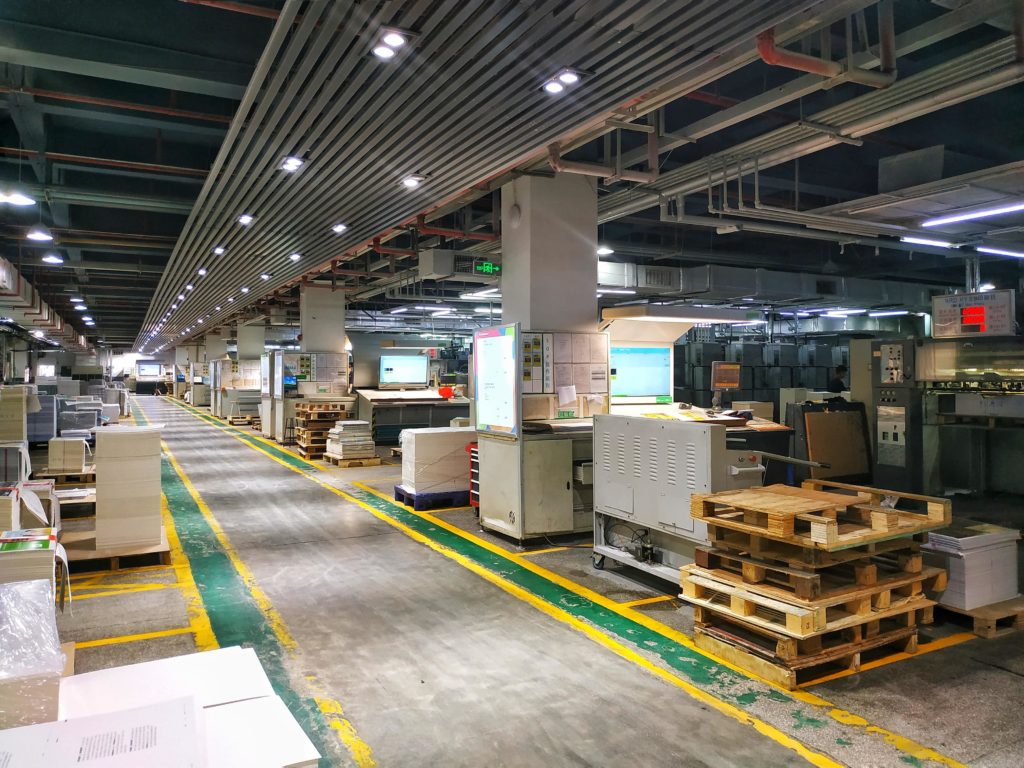


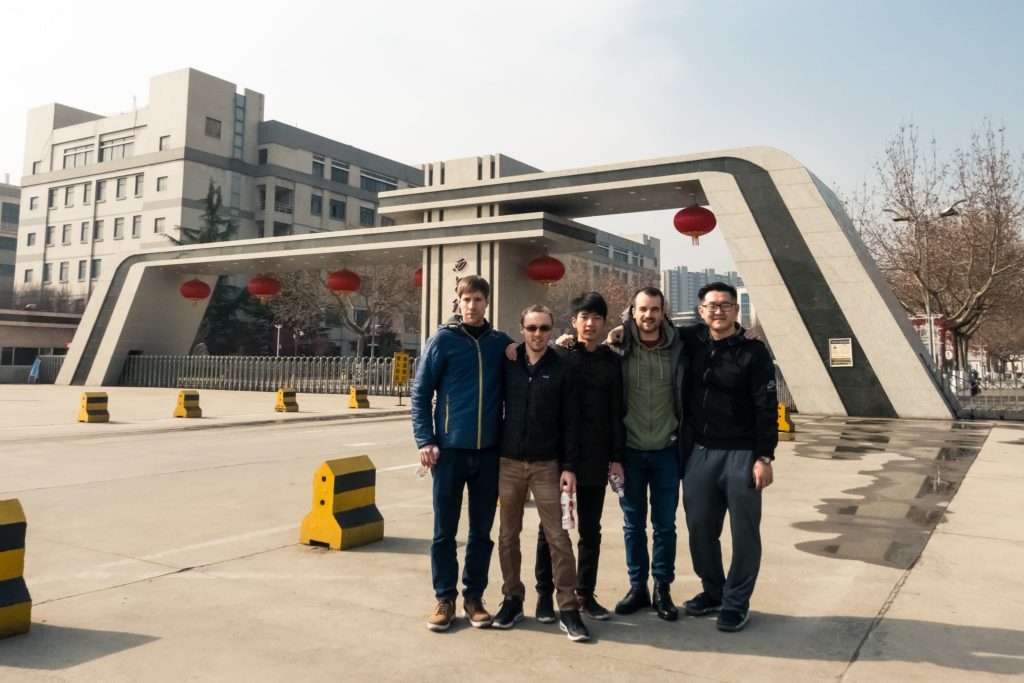
How the Hochschule der Medien Prepared Me to Start an International Printing Business. (Hunter Bliss)
“Who would have thought that some random kid from a quiet town in the Southeast US would learn German, move to Stuttgart, learn Chinese in Germany, and then pursue the American Dream with their own printing business in Shenzhen, China? That is one of the realities made possible (only) by Hochschule der Medien.
My name is Hunter Bliss, and I am a 2019 alumni of the printing technologies major offered at the Hochschule der Medien. I’m from Lexington, South Carolina, but I moved to Germany when I was 18. In the beginning, I joined a bachelor program in Mannheim to learn German. After passing the DSH language certification, I moved to Munich to chase my original goal: earning a bachelor’s in physics from the TU Munich, a renowned institution that prides itself on its Nobel Prize winners and Bavarian heritage. Already in my third semester there I realized that their system wasn’t for me and that the vision I had for myself really didn’t make me happy.
I dropped out to search for something that could reignite my passion to learn. At the time, two deciding factors led my search: My mom’s long influence as a graphic designer, and my newfound interest in foreign cultures from the first years in Germany. After receiving a recommendation from my boss at the time, I looked to the Hochschule der Medien for a program in media. What I found changed my life: a comprehensive printing program that taught the design and German engineering side of printing, as well as the exotic, competitive world of international business.
I’d like to take a moment to look back to my studies at the Hochschule der Medien and explain how they have prepared me for the challenges I face today. I hope you find the same value in your studies there too.
- I am better informed about printing equipment and technologies than most of the market. People in this industry usually don’t get a formal printing education and they limit themselves to working in one particular process. For example, people who work in screen printing usually don’t really understand how flexo printing works. Lacking this scope makes it difficult for them to see many different solutions to a customer’s pain points. Now when I have a customer come to me, I can make the decision as to how the job should be produced or forwarded. This might mean the difference that earns an innovative patent or a few million dollars in revenue.
- I was taught to see printing, inks, materials, and everything else with an analytical mind. When I took my company’s innovative paper samples to the Shenzhen university to have it investigated under an electron microscope, my partners could not see the value that I know comes with this knowledge about materials. I still continue these scientific investigations because I understand how deep German engineers go to be the best (and wisest) at their craft.
- I see the much larger picture of the printing industry and the business I do. The typical employee at a printing company has no idea how large the paper industry is, where trends are going, where technology is changing, and how consumers themselves are changing. This final lesson is definitely the reason I decided to make a commitment and seek investment for my company. If I didn’t have my education from the HdM, I wouldn’t have the confidence to try and dig out my own niche in the printing world.
- I’ll dedicate number four entirely to what I have learned abroad, especially in China, not just the Hochschule der Medien. China is the absolute epicenter of the printing business today (with India also coming up quickly). The prices that come from China and the volume of business they manage make only automated productions competitive in Western countries. It’s normal for a Chinese printing company to have a dedicated port for shipments as they move tens of thousands of employees around like armies. They are usually not at the forefront of innovation like the Germans, but they produce a huge share of the world’s books and packages and compete fiercely in the boardrooms over multi-million dollar contracts every day. Working previously at a packaging company and the largest US printer in China have taught me that the printing business requires leadership, patience, and cunning. I am still learning a lot from my life here.
Now you might be wondering what kind of business I started. Shortly after starting my bachelor thesis, I discovered a new type of paper that is made of rocks. It is called stone paper and it was invented in Taiwan in the late 90s. It uses no trees, no water, no chemicals, and generates 70% less carbon emissions than traditional paper in production. It doesn’t take a graduate of the Hochschule der Medien to realize that this paper has huge potential for the world market, but the knowledge I gained there pushed me over the edge. As soon as I finished my thesis and graduated, I left my job and started a company called Pebble Printing Group. Right now, it’s me, my first investor, and my printing partners pushing to develop the use of this paper around the world. We are developing books, packaging, and proprietary products using stone paper. All the while my education at the Hochschule der Medien remains the backbone of what I am trying to create with Pebble.
For me, this entire history took place in the German and Chinese languages, and I had to pass through several hoops just to be eligible for the program. But now it’s accessible to everyone! I have come to know great friends from the new Print Media Technologies major at the Hochschule der Medien, which exposes students to masterful printing and people from even more diverse cultural backgrounds. If you ask the people I know, who should be graduating in a few semesters, you will probably find that they have done great things in print too.” (Hunter Bliss)
